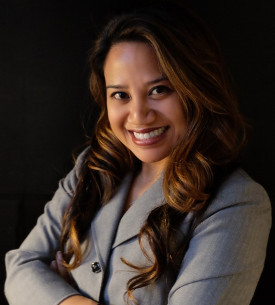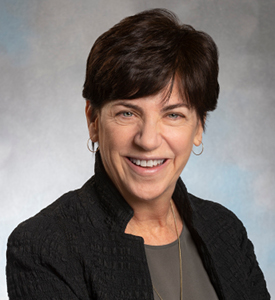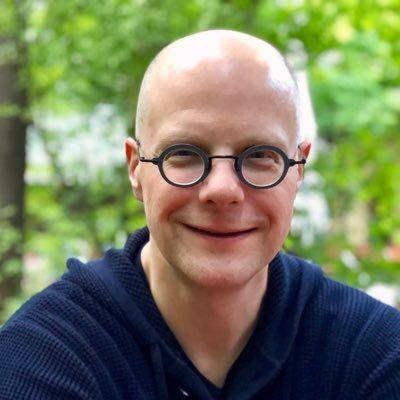
- This event has passed.
The Feedback Course: Transforming Self, Others, and Culture (Thursdays)
March 8, 2021
(All events are displayed in US Eastern Time — Boston)Event Navigation
Tuition
$1200 USD
NOTE: Tuition covers 1 person to participate in the course. No additional viewers are allowed. If you would like us to run this course exclusively for members of your department or institution, please Contact Us.
About this course
The Center for Medical Simulation’s online Feedback Course provides a way for health profession educators, leaders, administrators, or health related practitioners who give feedback in healthcare settings to develop their feedback skills. Course participants meet in a 2-3 hour class video conference 6 times over a 7-week span with 1 midterm break between either course week 3, 4, or 5. Participants complete an additional 3-6 hours of preparation and practice time course work per week at a time most convenient to them.
NOTE: The course runs March 8 – April 23, 2021 (7 weeks) with a break during the week of April 12-16, 2021.
Click on the date to see the session time in your time zone. Class video conference sessions are scheduled for:
US Eastern Time1, 2
- These course dates will be held at United States Eastern Standard Time (UTC-5).
- United States Daylight Savings Time starts at 2:00AM on Sunday, March 14. These course dates will be held at United States Eastern Daylight Savings Time (UTC-4).
Required Textbooks
You may want to purchase or search for the books required for this course. We understand that there are free PDFs available on the web. While the work required for each of these books will take about 15 minutes, we recommend reading the entire book at your leisure prior to the first class (as completely optional reading).
- Thanks for the Feedback: The Science and Art of Receiving Feedback Well by Douglas Stone & Sheila Heen. We ask that you read the summary bullet points at the end of each chapter–about a 15 minute read. Alternatively, watch a summary video that we will send to you before the applicable class.
- Difficult Conversations: (How to Discuss What Matters Most) by Douglas Stone, Bruce Patton, & Sheila Heen. Before our second class together, we will ask you to read Chapter 5. It is a short and powerful chapter–about a 15 minute read.
Technology Requirements
All materials and course interactions will occur online to reach participants from different areas of the world. There are several technology requirements. The course uses a team collaboration application that syncs to mobile devices and computers for convenience. Participants will receive training on the application with activities to orient the participants to each other and the application prior to the start of the course. The application will serve as the platform for learning, communications, and sharing materials to foster a community of practice that can continue beyond the course. In order to participate, each person must have:
- A smartphone or mobile device (e.g. tablet)
- A computer for video conference sessions (desktop or laptop)
- Reliable high-speed internet access (minimum 3 Mbps upload/download speed)
- Computer headset or headphones/earbuds with microphone
- Webcam or other video recording device (i.e. tablet, smartphone, video recorder)
Each individual – even those participants who are from the same institution – needs his or her own computer and computer headset (microphone and earphones).
Instructors

Janice Palaganas, PhD, RN, NP, FSSH, ANEF, FAAN
Associate Director of Health Professions Education
MGH Institute of Health Professions, Boston, Massachusetts
Principal Faculty
Center for Medical Simulation, Boston, Massachusetts
Dr. Palaganas has developed a passion for teamwork from her background as an emergency nurse, trauma nurse practitioner, director of emergency and critical care services, and faculty for schools of medicine, nursing, allied health, management, physician assistant studies, and emergency medicine. As a behavioral scientist and former clinical nurse and hospital administrator, Dr. Palaganas’ passion is in using health care simulation as a platform for interprofessional education. She served as a committee member of the Institute of Medicine’s report on measuring the impact of interprofessional education on practice. Dr. Palaganas has shaped the field of simulation, leading the development of the Society for Simulation’s Accreditation and Certification Program, authored their first textbook, Defining Excellence in Simulation Programs as editor-in-chief. She urged the development of the recently released Society for Simulation dictionary, authored seminal articles, and co-authored field-changing research including the National League for Nursing study for high-stakes assessment using simulation.

Jo Shapiro, MD, FACS
Associate Professor of Otolaryngology Head and Neck Surgery
Harvard Medical School, Boston, Massachusetts
Consultant
Massachusetts General Hospital Department of Anesthesia, Pain and Critical Care, Boston, Massachusetts
Principal Faculty
Center for Medical Simulation, Boston, Massachusetts
Dr. Shapiro founded the Brigham and Women’s Hospital Center for Professionalism and Peer Support in 2008 where she served as the director for over 10 years. During that time, the Center became a model for national and international institutions seeking methods to enhance trust and respect and improve clinician wellbeing. She continues to assist organizations in developing specific programmatic approaches such as peer support, professionalism and wellbeing initiatives. She is involved in global health medical education and training.
Notes:
Course runs March 8 – April 23, 2021 (7 weeks) with a break during the week of April 12-16, 2021. Class video conference sessions held on Thursdays, generally 1-3PM US Eastern Time.
Application Deadline: Feb. 22, 2021
